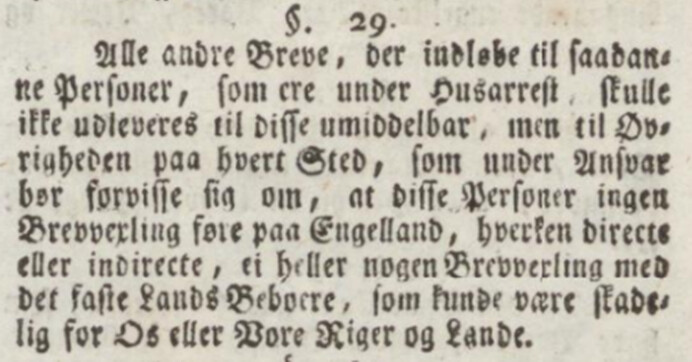Dear Friends,
Today – as nearly every day – I looked up a word in order to learn about the etymology of a Norwegian term: in this case «hus» or, in English, «house.
As usual I found the entry informative, but I was a little surprise to find this: «House arrest first attested 1936».
In consequence, I did a search through the newspapers at the Norwegian National Library (Nasjonalbiblioteket) on the Norwegian equivalent - «husarrest» - and chose to have the results sorted by publishing date, and could thus find the earliest instance.
This turned out to be Bergens Adressecontoirs Efterretninger from 14 November 1807.
In my experience, words like «husarrest» are overwhelmingly likely to be imports, for which reason I remain puzzled by the appearance of «House Arrest» only in 1936.
That was today’s reflection.
Best regards
Tore Svenning
(Source: Bergens Adressecontoirs Efterretninger, lørdag 14. november 1807; Nasjonalbiblioteket)
§. 29
Alle andre Breve, der indløbe til saadanne Personer, som ere under Husarrest skulle ikke udleveres til disse umiddelbar, men til Øvrigheden paa hvert Sted, som under Ansvar bør forvisse sig om, at disse Personer ingen Brevvexling føre paa England, hverken directe eller indireced, ei heller Nogen Brevvexling med det faste Lands Beboere, som kunde være skadelig for Os eller vor Riger og Lande.
English:
§. 29
All other letters that arrive to such persons who are under house arrest should not be handed over to them immediately, but to the authorities in each place, who should be responsible for ensuring that these persons do not exchange any correspondence with England, either directly or indirectly, nor any correspondence with the inhabitants of the mainland that could be harmful to us or our kingdoms and countries.
